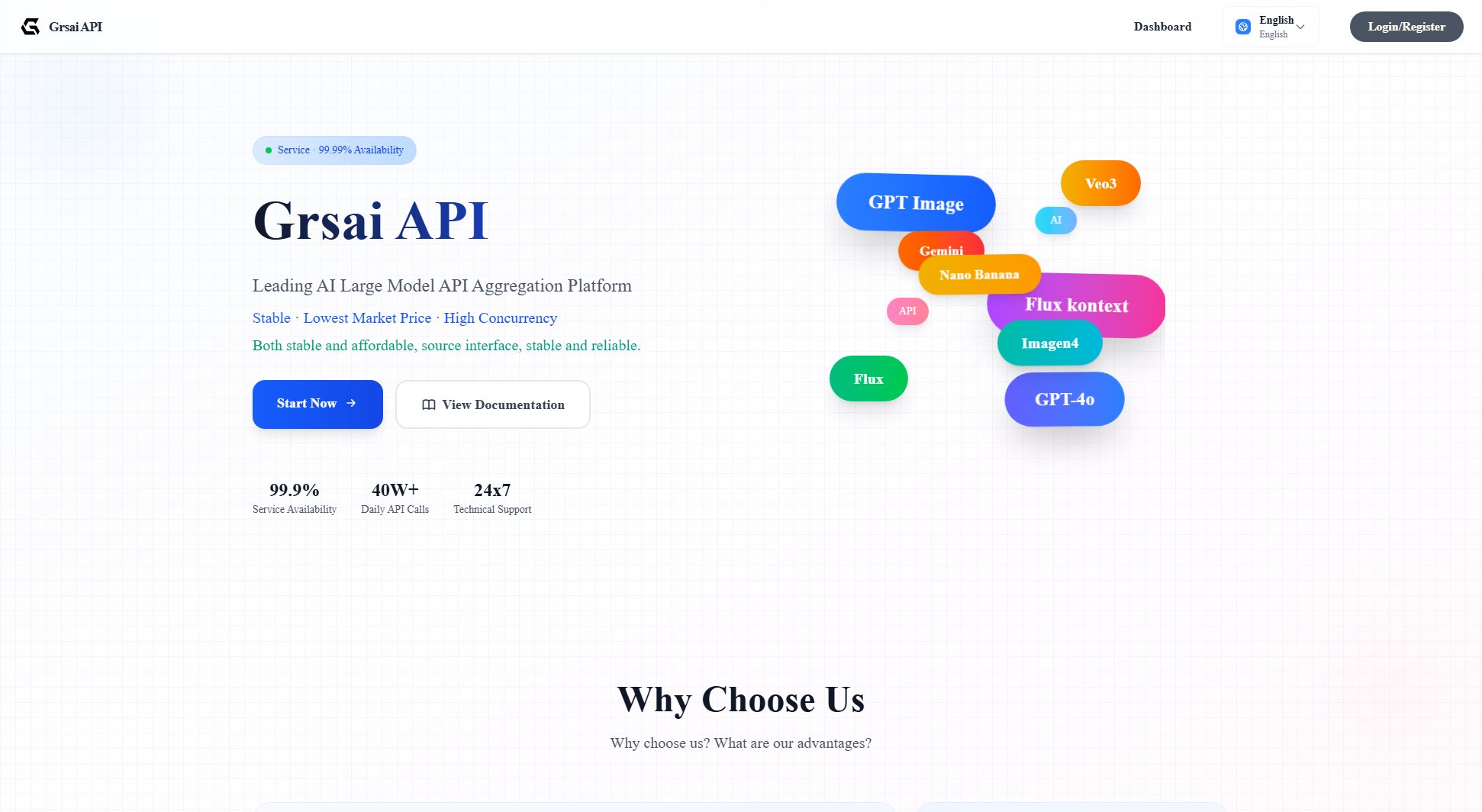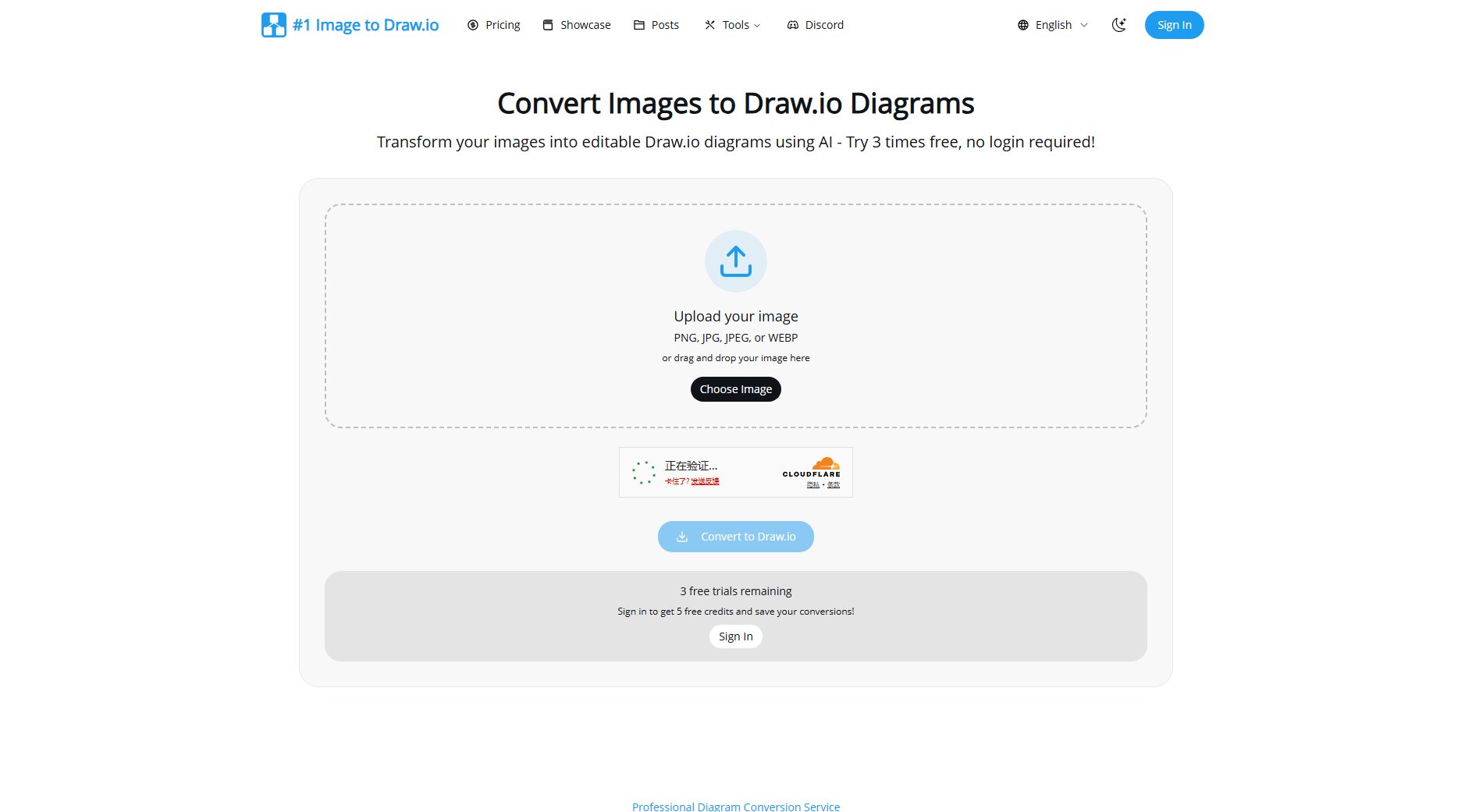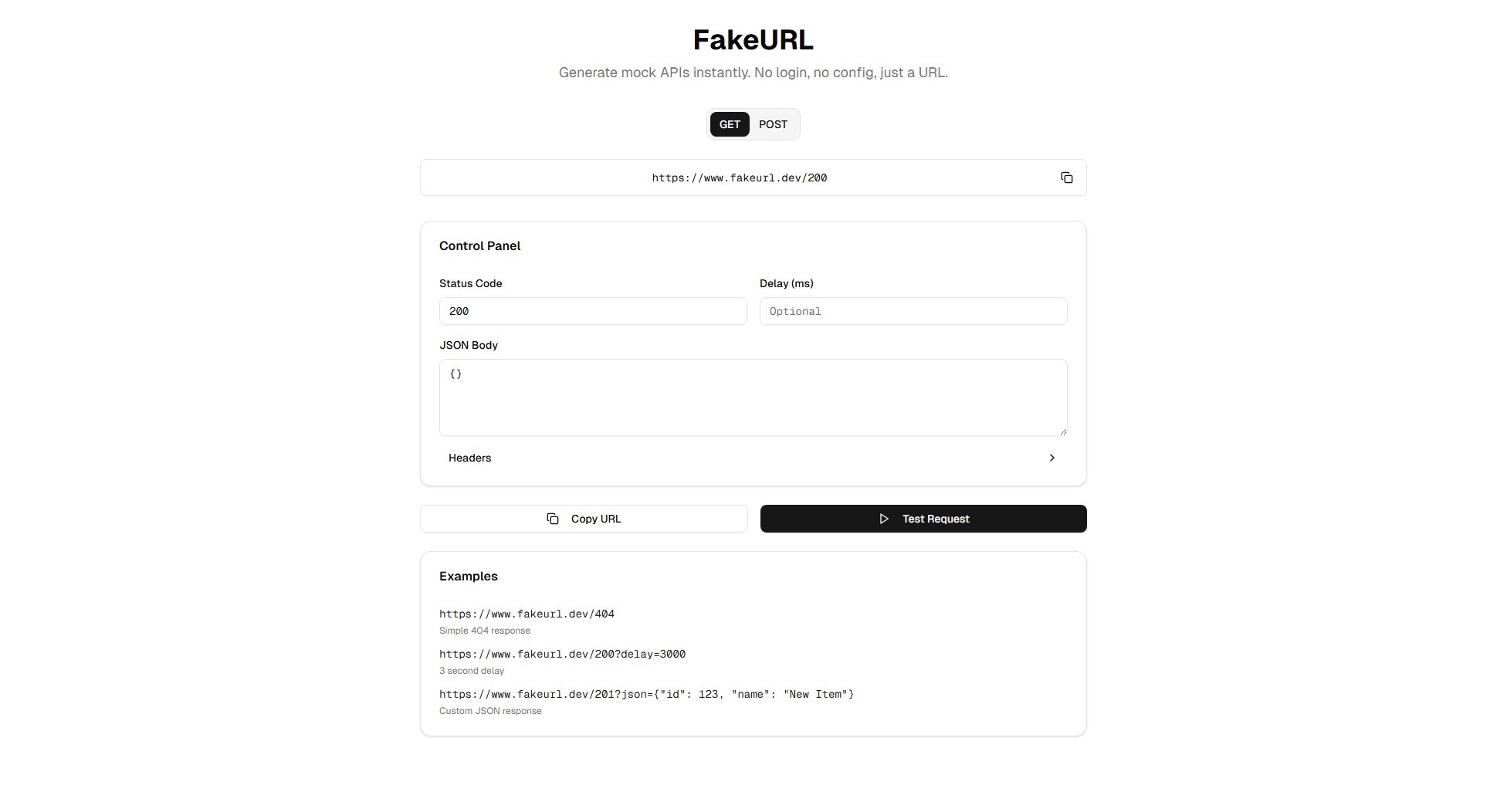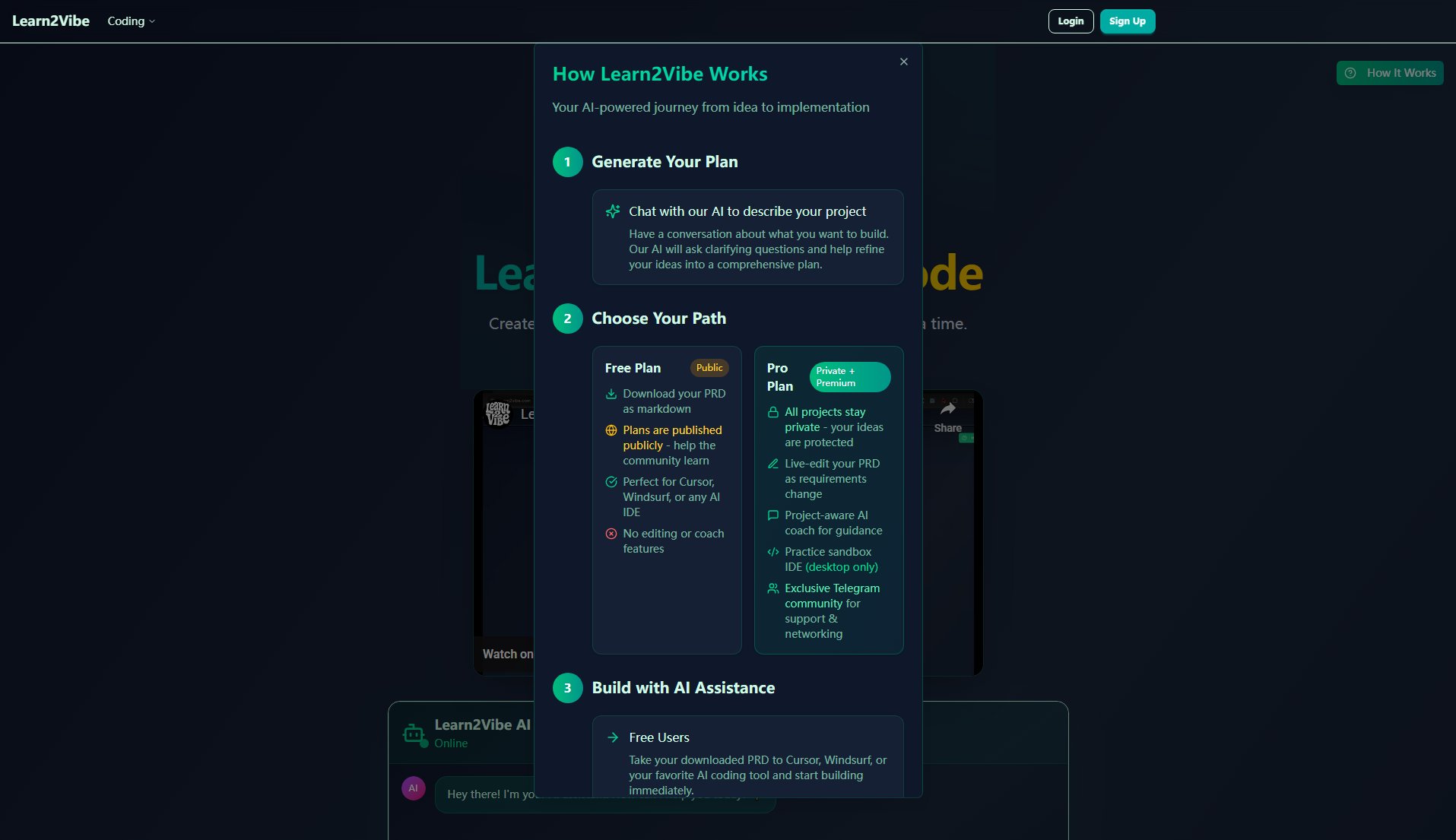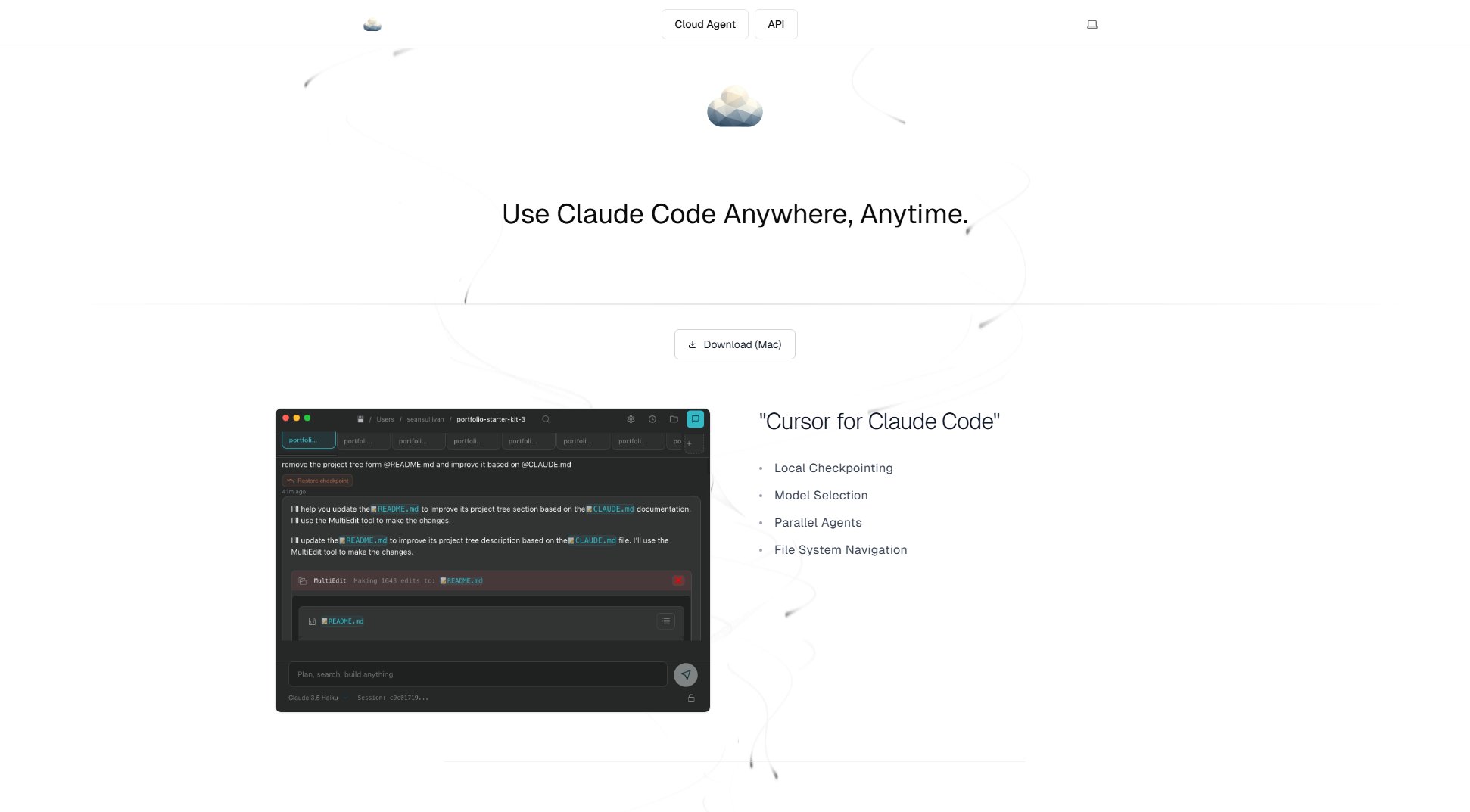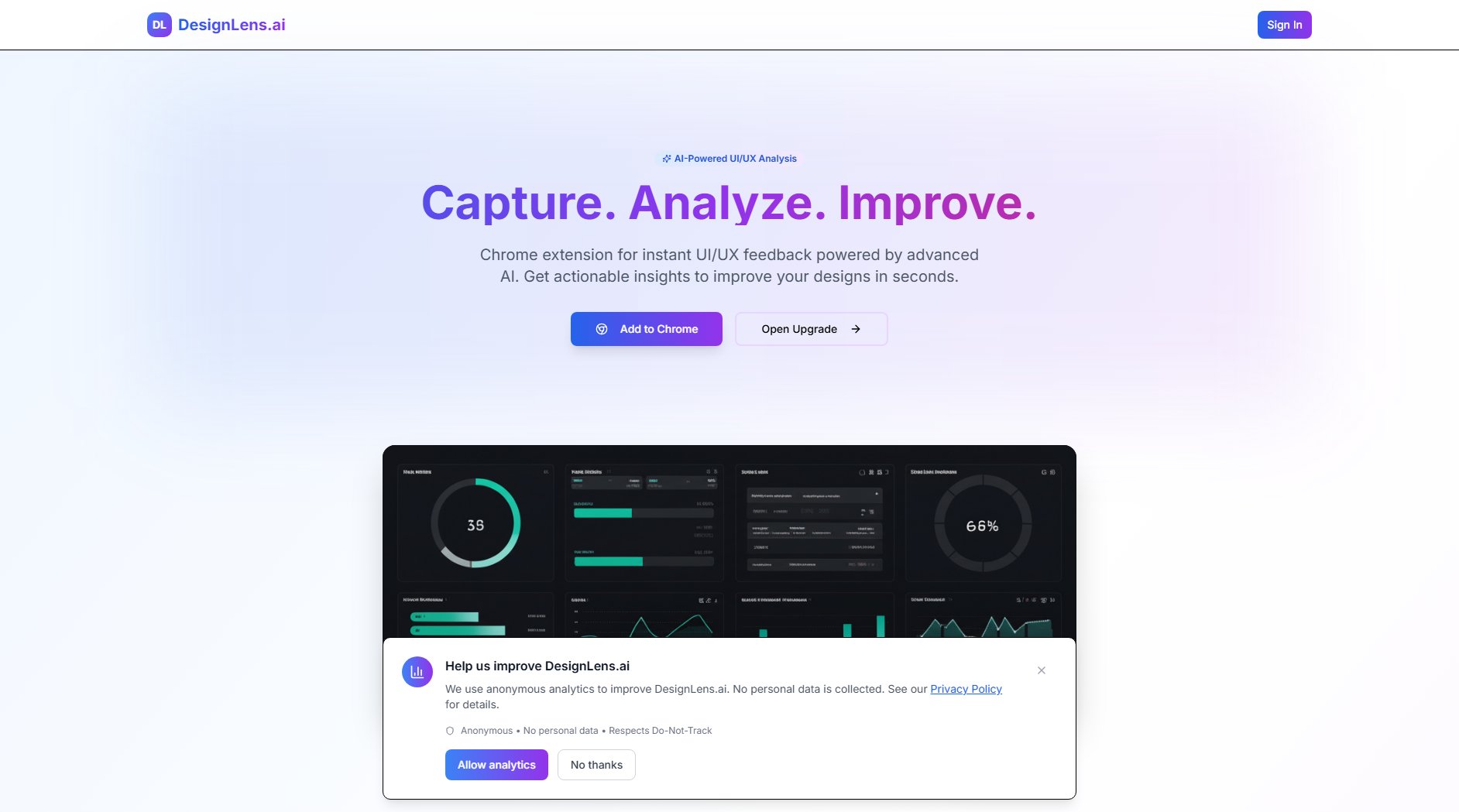Who's Server
AI copilot for Linux server management that suggests safe, distro-aware fixes
What is Who's Server? Complete Overview
Who's Server is an AI-powered Linux server management tool that eliminates the need to memorize commands. It acts as a copilot that reads terminal output in real-time and suggests safe, distro-aware fixes that users can approve before execution. Designed specifically for developers and system administrators, it solves key pain points like context loss during troubleshooting, manual command lookup, and inefficient multi-server management. The tool integrates seamlessly with existing SSH setups without requiring any agents or daemons to be installed on servers.
Who's Server Interface & Screenshots
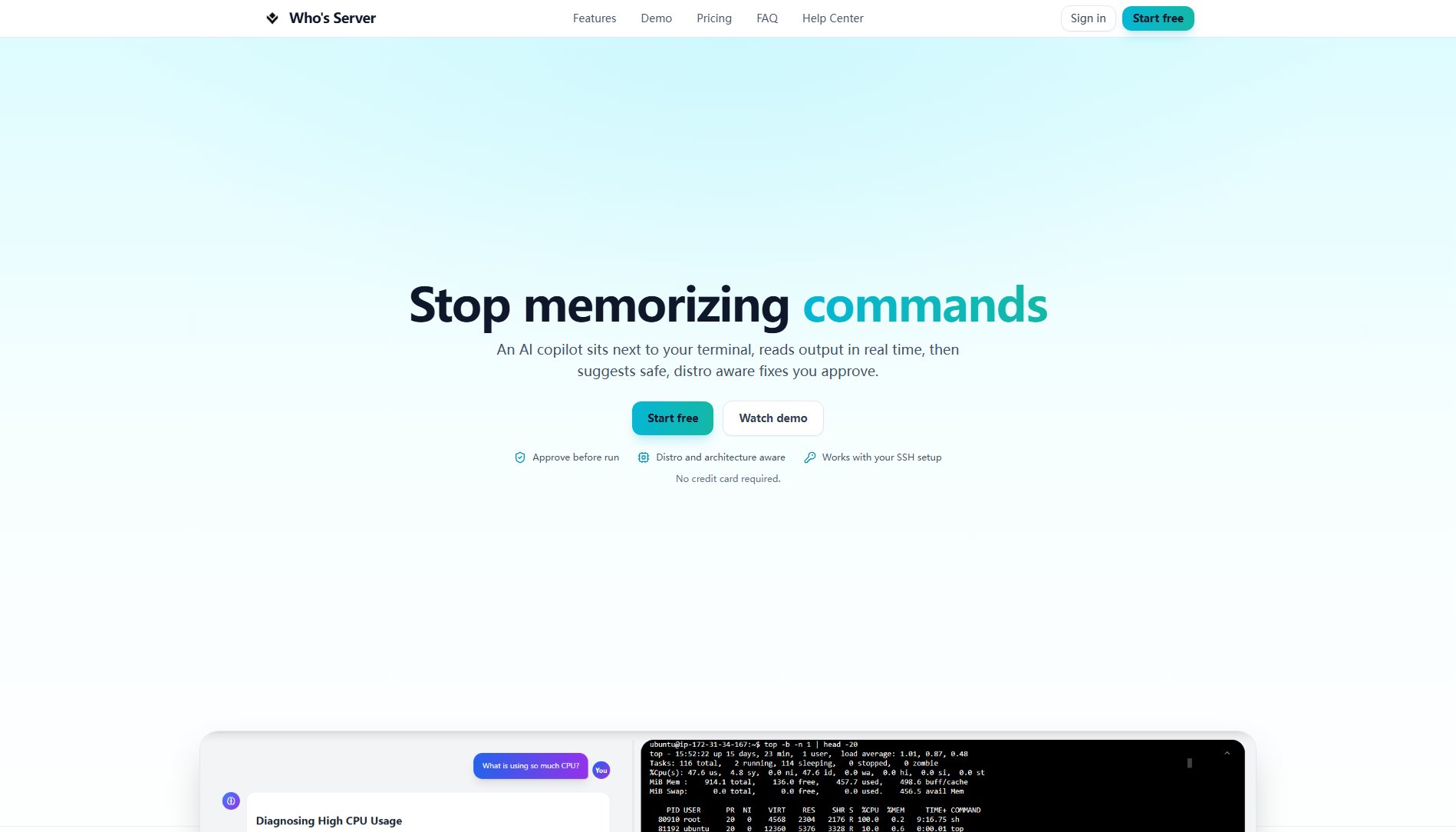
Who's Server Official screenshot of the tool interface
What Can Who's Server Do? Key Features
Live Context Understanding
The AI continuously reads terminal output in real-time, eliminating the need for manual copy-pasting. It maintains context of what happened in your session to provide relevant suggestions.
Distro and Architecture Awareness
Commands are automatically tailored to your specific Linux distribution (Ubuntu, CentOS, RHEL, etc.) and CPU architecture, ensuring they'll work correctly on your system.
Approval System
Every suggested command requires explicit user approval before execution, maintaining security and creating a clear audit trail of changes made.
Comprehensive Installation Support
Provides exact installation steps for common server software like Nginx, Portainer, Docker, and more, customized for your environment.
Deep Debugging Capabilities
Analyzes logs and error messages to spot patterns and provide targeted checks and fixes for complex issues.
Multi-Server Context
Maintains context when switching between different servers, allowing seamless troubleshooting across your infrastructure.
Best Who's Server Use Cases & Applications
Docker Container Issues
When a Docker container fails to start, Who's Server analyzes the error messages and suggests specific troubleshooting steps and fixes tailored to your environment.
Multi-Server Deployment
Manage deployments across multiple servers while maintaining context of what commands were run where, eliminating confusion when switching between hosts.
Software Installation
Get precise installation instructions for various server software packages, customized for your specific Linux distribution and version.
How to Use Who's Server: Step-by-Step Guide
Connect your server by pasting your SSH public key on your server and linking it in Who's Server. No agents or daemons required.
Ask questions or describe issues in plain English. The AI watches your terminal output and replies with exact commands.
Review the suggested commands with explanations and reasoning provided by the AI.
Run the approved commands yourself or follow the guided sequence while maintaining full control.
Who's Server Pros and Cons: Honest Review
Pros
Considerations
Is Who's Server Worth It? FAQ & Reviews
Absolutely. All data is encrypted in transit and at rest. AI suggestions never run automatically - you review and approve every command. We use the same SSH security you already trust.
No, we cannot access your servers. We only see the terminal output you choose to share with the AI. For support issues, we require explicit permission to access any account data.
Never. Your terminal output and conversations stay private and are not used for AI training. We respect your privacy and intellectual property.
All SSH keys are encrypted with industry-standard AES-256 encryption and stored in secure, compliant infrastructure. Keys are encrypted both in transit and at rest.
No installation required. Who's Server connects via standard SSH - the same protocol you use every day. No agents, daemons, or background processes.
We support all major Linux distributions: Ubuntu, CentOS, RHEL, Debian, Fedora, SUSE, and more. The AI adapts commands to your specific distro and version.
Yes. You can remove servers, delete SSH keys, and clear chat history anytime from your dashboard. To delete your entire account, email [email protected].
